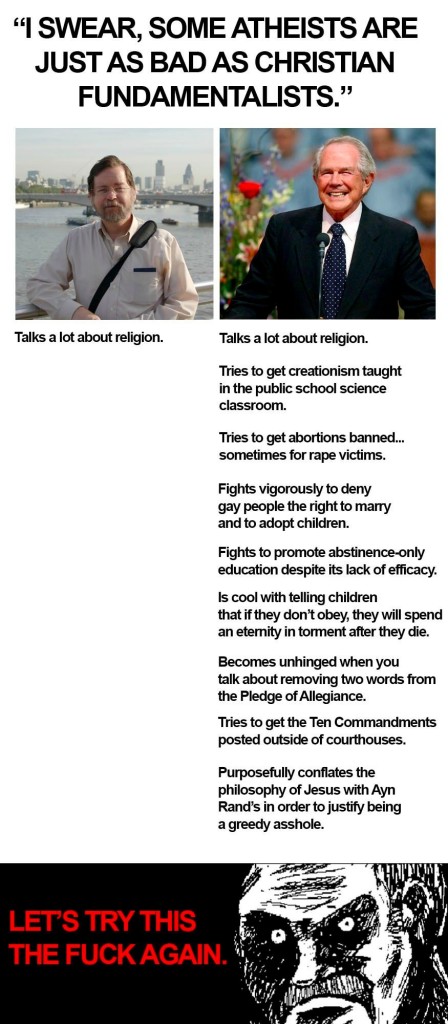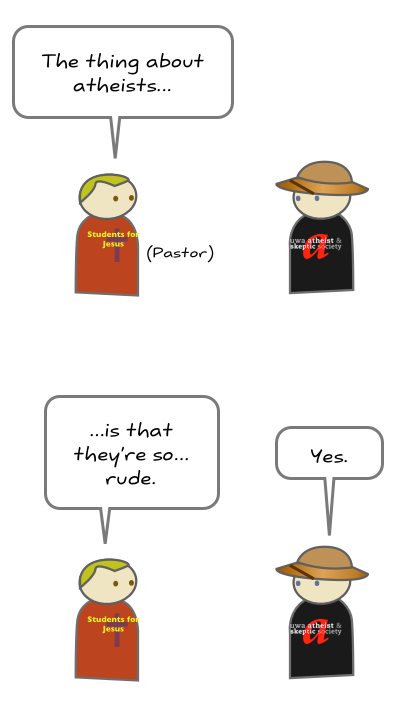There are a multitude of reasons that I’m an atheist. With the exception of a brief time as an “angstheist” when I was a teenager, none of those reasons include denial or anger. Rather than focus on the negative, I’d rather focus on positive and start from the beginning.
I am an atheist because I am fortunate enough to be a member of an order of apes that evolved intelligence. This evolution may have wired us to see patterns and believe the absurd, but the intelligence we’re gifted with also allows us to overcome this shortcoming. I am an atheist because there were men and women before me who refused to believe that the mysteries of the natural world were to forever remain unknown. Collectively, they developed the most reliable means available of uncovering these secrets. I have no doubts that I would be dead (a severe impediment for being anything beyond compost) if not for this scientific revolution; let alone capable of writing this letter.
I am an atheist because I’m not afraid of questions to which I don’t have answers. Instead I am, like many before me, driven to embrace the search for truth, regardless of what strange, frightening or fantastic truth that search my unearth. I do not require fairy tales to reassure me and push an illusion of purpose.
I have been fortunate to have parents that cared more about my well-being than about indoctrinating me into their faith. They taught me to be a decent human being without the fear of divine retribution. I was taught to appreciate the truth and to discard any falsehoods I may have acquired. Perhaps most importantly, that is why I am able to say that I am an atheist.
AJ Champlin



